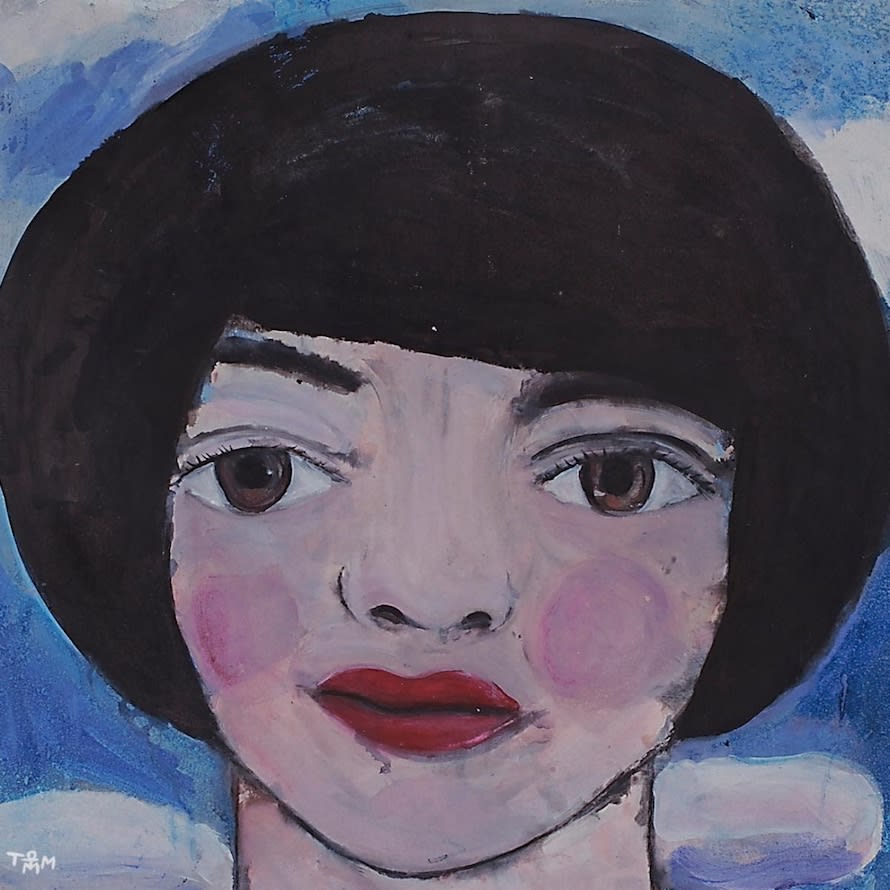Bonny Light Horseman venture into the ancient woods, lantern in hand, on their third record, Keep Me on Your Mind/See You Free. There's some tension around the margins, but the double album's focal point is the bright, welcoming torch kept burning by the band.
The group is made up of masterclass musicians: Anaïs Mitchell (as a solo artist, she wrote Hadestown, which later became a massive musical theatre success), Eric D. Johnson (of the Fruit Bats, the Shins and his fantastic composing work on 2012's underrated Mary Elizabeth Winstead and Aaron Paul heartbreaker Smashed) and Josh Kaufman, who's worked with the National, the Hold Steady and Taylor Swift.
With each release, the trio have whittled down their textures and delved deeper into a nostalgic, turn of the 20th century sound. The bulk of Keep Me on Your Mind/See You Free's 20 tracks were recorded in Levis Corner House, a pub in the tiny coastal town of Ballydehob, Ireland. It's a rural, golden half-light affair. Everything creaks, and it sounds like frothy pint glasses on brass inlaid table tops — the upright piano at the aforementioned establishment makes many appearances across the double LP. Spinning this record is an extended night on the barstool after a long afternoon, being served ale after ale by the wooly trio. It's comforting to hear songs about love, friends and aging performed with sparks flying between all the textures. It feels alive.
The record begins with the moody title track, which slowly revs from a cloudy hum into a reverb-soaked call and response between Mitchell, Johnson and shimmering guitar lines. "I Know You Know" verges into pop territory, and its use of digital synths in the pre-chorus feels out of step with the rest of the sonics here. It's an outlier, a well-written but overproduced song destined to live on playlists instead of bar stools. By contrast, the utterly real "When I Was Younger" sounds like a bootleg of the band playing a now-legendary live set. There's audible audience coughs kept in, and that rare electric guitar solo is pockmarked with buzzy imperfections before the song explodes into Johnson and Mitchell's harmonies wailing into the night. It's an album highlight, and one of the most gorgeous songs the band has ever recorded.
The band and their collaborators (including Mike Lewis on upright bass and Annie Nero on piano and vocal harmonies) are at their best when everything feels as though it's being performed in front of the listener. This becomes increasingly true as the record strums on. "Singing to the Mandolin'' is a particular standout here — it's got full-throated backing vocals by a multitude of voices, and it feels like a midnight pub singalong. The mournful drone of "Into the O'' is the most doom-laden of the bunch, certainly.
The piano on this record has such a primeval character to it, it's utterly singular. The millisecond before each chord strike is filled by the ivory-on-wood scrape; Listen to "Speak to Me Muse" without smiling at that old, creaky pub piano. The band used olive oil to dull some of its plaintive whines, but thankfully it was only semi-effective at quieting the ancient entity that snores within.
While previous releases relied on traditional songs to lend a weight to their art, Bonny Light Horseman have become a primordial, acoustic force of nature on Keep Me on Your Mind/See You Free. Most of these songs sound like they were written over a century ago, and performed with instruments just as storied. The only sounds that don't murmur with age are the clear, full-throated voices of Mitchell and Johnson. With a few folk-pop dabbling exceptions, the trio maintain the timeless, fireside publican house atmosphere for the entire runtime. By the time Johnson engages his cracked, controlled falsetto on "Your Arms (All the Time)" to cry out, "Your hands all the time / And the lighting of the candles / For the loves gone by!" it's clear he's stating the intention of the entire collection of songs. The few moments of experimentation are outweighed by an assured grasp of traditional instrumentation, and it works out for the better. This is a well-travelled band firing on all cylinders. Enjoy it with a terrible house beer and hardworking, sweaty company.
